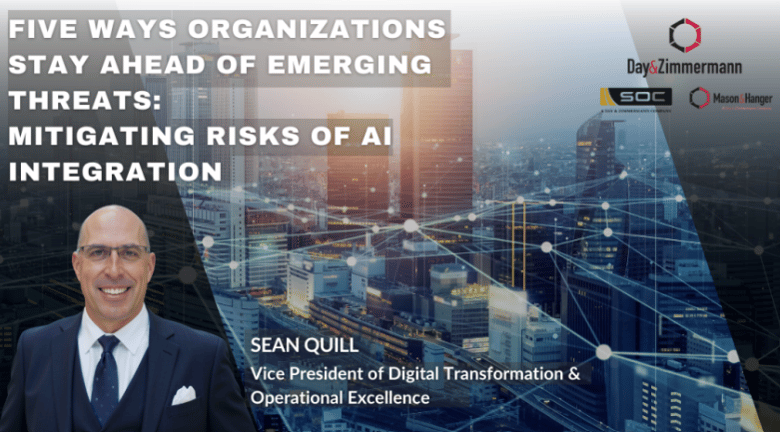
Lately, the use of deepfakes has gained favor among cybercriminals. Sophisticated cyberattacks have the power to impair threat detection abilities, disrupt communication, and create confusion among the involved parties. At a 2024 AI Action Summit in Paris, French President, Emmanuel Marcon used an AI-generated deepfake to demonstrate how easily these can be interpreted and perceived as news. This can lead to a rise of disinformation campaigns, creating discord and distrust with the agency or organization using the system.
Artificial Intelligence (AI) continues transforming the world, helping organizations evolve and improve the way they operate, but as a complex emerging innovation, users are advised to tread carefully.
Establishing Effective and Safe Operations
Autonomous systems can present opportunities for growth and efficiency, but as a sophisticated system, restrictions need to be implemented. Organizations can mitigate the risk that AI can present within operations, using these five factors:
-
Develop a corporate framework for using AI: Implementing governance surrounding AI sets clear guidelines around the use of AI and keeps agencies compliant. Organizations like Day & Zimmermann created guidelines and policies for the generative AI systems, available for all employees to access. With an established framework, an ethics committee can be developed to help reinforce and continuously improve policy, ensuring it is being used in compliance with organization standards.
-
Audits can help mediate abnormalities or errors that could affect operations negatively: Recently, the increased usage of AI has sparked more awareness about the risks the system might present. A recent Forbes article highlighted the benefits of having a regulatory audit system including building trust and minimizing risk within the agency. Implementing risk assessments and audits protects organizations from unexpected challenges that could alter decision-making and reputation.
Auditing systems are also capable of identifying and addressing potential issues or biases in real-time. Audits also help ensure accurate accuracy and completeness of the information provided. -
Security is a critical component for making sure the organization stays protected against cyber adversaries: AI can be used as a security component to detect threats, but it is also important to acknowledge it can also pose a threat to operations. Cyber threats have evolved tremendously over the years, and as partners to the U.S. Government, ensuring data security is crucial. Encrypting sensitive data that can be interpreted by AI assists agencies in protecting customer information from data leaks, unauthorized access, and compliance violations with customers.
To further protect organizations, there needs to be strict access and controls on who can access AI systems. Organizations like Day & Zimmermann form councils with limited authorized personnel to shepherd new autonomous systems and assist with the safe and secure integration of AI. Limiting the number of authorized users and establishing role-based access controls aid organizations in pinpointing security issues and safeguarding sensitive information more effectively.
-
Creating a culture of compliance encourages ethical use of AI: Regulations help promote the safe implementation and use of AI. Establishing a culture of compliance allows employees to use autonomous systems according to the organizations expectations and standards. Having governance reduces the risk of confusion and misuse with AI systems. Compliance checks are effective in ensuring employees understand the constraints around those systems and encourage them to speak up when they see systems being used irresponsibly.
-
Promote a learning mindset around AI: AI is a sophisticated and complex innovation with the power to adapt rapidly. Day & Zimmermann provides training classes and knowledge-based content to keep employees informed on risks, learn how systems operate, and get them excited about using autonomous systems. By continuously learning about changes related to current AI systems, new beneficial tools, and methods to safely integrate concepts, agencies can stay ahead of advancements that have the power to alter the way they operate. As more organizations embrace AI capabilities, it is helpful to identify potential challenges that the systems may present and transform those into opportunities to develop and grow.
Navigating this new and complex environment can be daunting, but with the proper policies and security, agencies can ensure autonomous systems are utilized safely and with safeguards. Developing policies and processes around AI helps organizations like Day & Zimmermann stay competitive in a digital-first economy.

.png)
